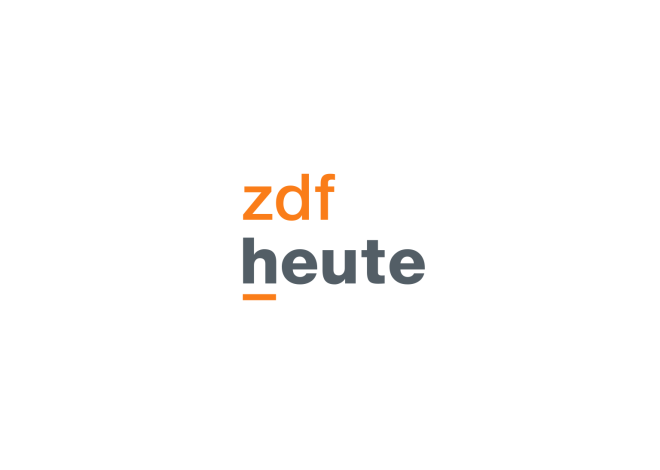
Psychological stress at work not only harms those affected, it also leads to
Effectiveness control as the key to effective health management in companies. Companies can use the risk assessment of psychological stress to identify working conditions that make people unwell and mitigate them with suitable measures. “The risk assessment of psychological stress initiates a process of change: after the analysis and appropriate measures, the effectiveness control follows after two to three years. For me, this is the most charming step in this process because it shows which measures are effective and which need to be adjusted,” explains Dr. Maxi Robinski, occupational psychologist at TÜV Rheinland. Although the supervisory authorities expect a comprehensive implementation of the risk assessment of psychological stress, many companies stop after the first steps and thus miss out on an opportunity for further development and competitiveness in the agile market.
Identify the need for action and use resources in a targeted and sustainable manner
The risk assessment of psychological stress reveals, for example, whether employees feel positively encouraged or under pressure by the quality of management. It also answers, for example, whether production planning in a company is effective or causes quality defects that lead to frustration among employees through returns. The derived measures initiate change processes in the company that are intended to reduce possible stress. To check effectiveness, a handy and scientifically sound questionnaire is created from a list of these measures. It is used for written surveys of the workforce or is discussed and answered in workshops. Employees and managers are considered separately. The evaluation is anonymous. “The result shows which measures have the desired effect on the workforce, which are rarely used but have potential, and which do not have the desired success. This enables us to make adjustments or develop new measures and thus use the available resources in a targeted and sustainable manner,” says Robinski.
Success factors for effectiveness control
Key success factors for the holistic and effective implementation of the risk assessment of psychological stress are the continuous support of all steps from a single source – ideally by occupational psychologists. Equally important are the involvement of employees from the outset, clearly and understandably defined and communicated measures and clear responsibilities for their implementation. Effectiveness control should be firmly planned from the outset and also included in the budget provided. An internal company implementation often questions less the effectiveness of the measures, but often only records their implementation or awareness. “In our surveys, we sometimes find that a good measure is not well known enough in the company. If the effectiveness control brings this to light, the transfer of information can be improved and the potential of the measure can be optimally exploited.”
Leadership quality and communication have a major impact on psychological stress
In our experience, the quality of leadership has the greatest influence on the psychological stress of employees. Measures that lead to improvements through targeted training, professional development or organizational changes at the management level are considered to be correspondingly effective,” explains the occupational psychologist. Good communication of successes within the company is also rated positively. It is important to prepare the information in a way that is understandable and attractive for the workforce. In addition, the constant updating of job descriptions can have a positive effect on the psychological stress of employees if it means that work processes and responsibilities are adapted to the actual conditions in the workplace.
“Companies tell us that long-term cooperation, the reputation of the experts and a common strategy provide security when implementing the risk assessment of psychological stress. In addition, it is important that we, as an external service provider, provide tried and tested and scientifically validated methods that support companies in implementing effective company health management. The effectiveness control conveys to employees that their company is committed to the health of its employees in the long term, which, among other things, contributes to the employer’s image and the connection to the workplace,” emphasises Robinski.
Sources:
Companies and employees can find out more about TÜV Rheinland’s occupational medicine offering at the following link: www.tuv.com/abo-psychologie
About TÜV Rheinland
Safety and quality in almost all areas of business and life: that is what TÜV Rheinland stands for. The company has been operating for more than 150 years and is one of the world’s leading testing service providers. TÜV Rheinland has more than 22,000 employees in over 50 countries and generates annual sales of more than 2.4 billion euros. The highly qualified experts at TÜV Rheinland test technical systems and products around the world, support innovations in technology and business, train people in numerous professions and certify management systems according to international standards. The independent experts thus ensure trust along global flows of goods and value chains. TÜV Rheinland has been a member of the United Nations Global Compact for more sustainability and against corruption since 2006. Website: www.tuv.com
About TÜV Rheinland Occupational Health Services
As a subsidiary of the TÜV Rheinland Group, TÜV Rheinland Occupational Medical Services (AMD) operates occupational medical centers nationwide and advises companies on occupational safety and occupational medicine. Around 840 medical specialists, occupational safety specialists, psychologists, occupational medical assistants, health managers and consultants are committed to reducing risks and potential hazards in companies and protecting physical and mental health. This makes AMD one of the largest providers of occupational safety and occupational medical services in Germany. For a long time, occupational safety was only about the technical prevention of accidents at work, but today AMD is increasingly concerned with holistic prevention and health care.
Your contact for editorial questions:
Press office TÜV Rheinland, Tel.: +49 2 21/8 06-21 48
The latest press releases as well as topic-related photos and
Videos are also available by email at [email protected] and
in the
Internet: www.tuv.com/presse and www.twitter.com/tuvcom_presse
Original content from: TÜV Rheinland AG transmitted by news aktuell

Ethel Purdy – Medical Blogger & Pharmacist
Bridging the world of wellness and science, Ethel Purdy is a professional voice in healthcare with a passion for sharing knowledge. At 36, she stands at the confluence of medical expertise and the written word, holding a pharmacy degree acquired under the rigorous education systems of Germany and Estonia.
Her pursuit of medicine was fueled by a desire to understand the intricacies of human health and to contribute to the community’s understanding of it. Transitioning seamlessly into the realm of blogging, Ethel has found a platform to demystify complex medical concepts for the everyday reader.
Ethel’s commitment to the world of medicine extends beyond her professional life into a personal commitment to health and wellness. Her hobbies reflect this dedication, often involving research on the latest medical advances, participating in wellness communities, and exploring the vast and varied dimensions of health.
Join Ethel as she distills her pharmaceutical knowledge into accessible wisdom, fostering an environment where science meets lifestyle and everyone is invited to learn. Whether you’re looking for insights into the latest health trends or trustworthy medical advice, Ethel’s blog is your gateway to the nexus of healthcare and daily living.



